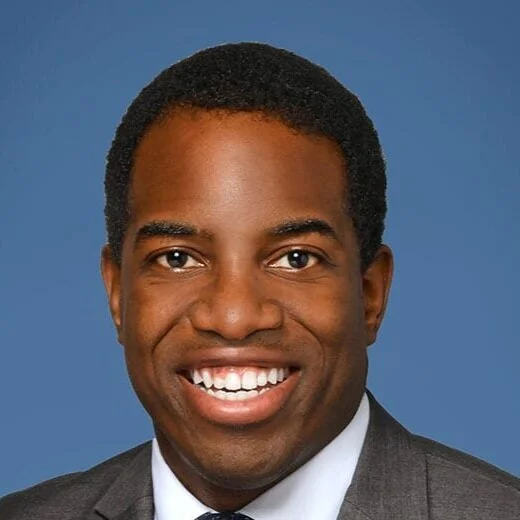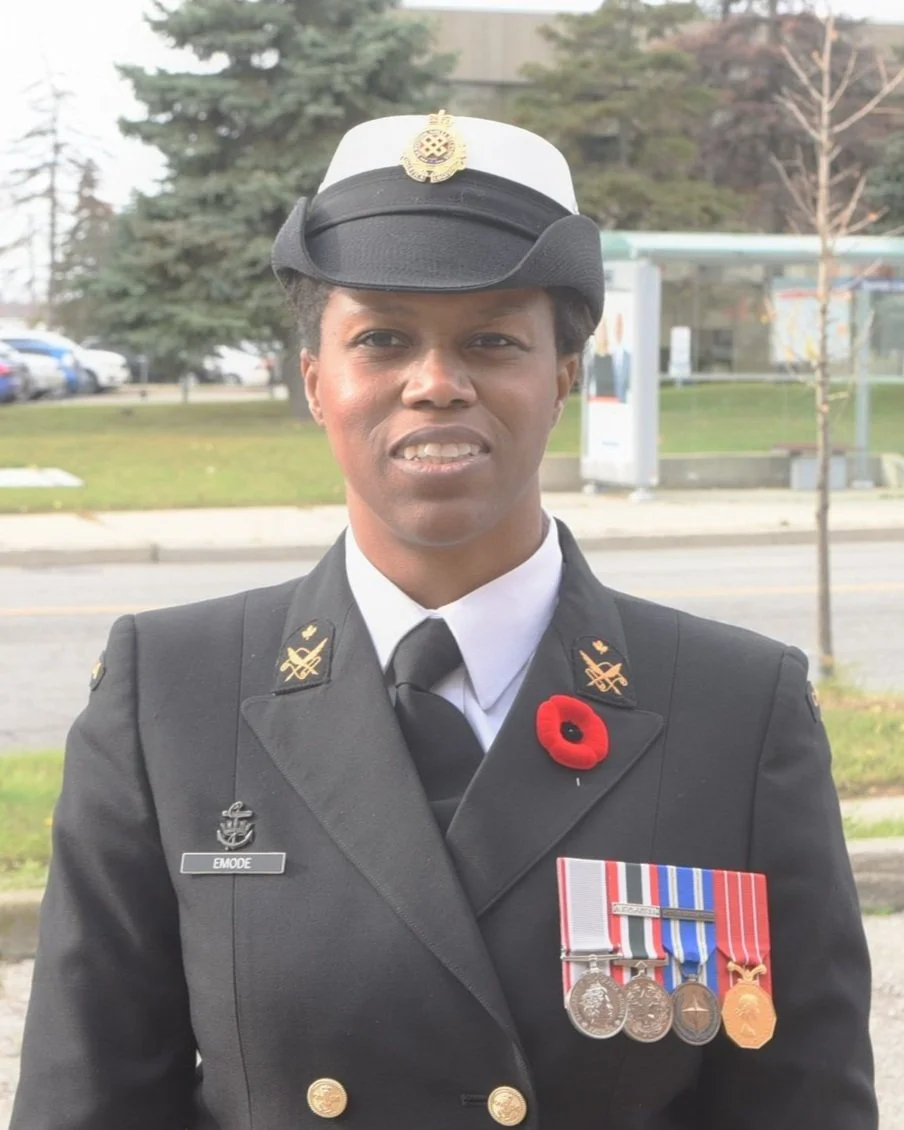Jamaican-born Paul Smith is HMCS York first Black commander
March 24, 2021
Straight out of high school in 1986, Lieutenant Commander Paul Smith joined the Canadian Naval Reserve (CNR) as an Ordinary Seaman at Her Majesty’s Canadian Ship (HMCS) York.
Thirty-five years later, he’s returning to the unit as its first Black Commander and 33rd, relieving Water Moniz.
Jamaican-born Smith starts his new assignment in July.
“It’s kind of neat to come full circle and command the unit where I started my military career,” he said. “I am really looking forward to this opportunity.”
Launched in 1923, HMCS York is a land-based naval establishment for part-time sailors and a recruitment centre for the CNR.
There are 24 naval reserve units across Canada.
Had it not being for a classmate at York Mills Collegiate Institute, Smith might not have been in the military.
Completing the Naval Reserve Summer Youth Employment program a year earlier, the friend challenged Smith.
“While indicating it was a great opportunity, he bet me that I wouldn’t be able to complete it,” recounted Smith who resided in North York and Scarborough before moving to Nova Scotia in 1988.
He didn’t back down.
Smith travelled by bus the next day to HMCS York and signed up for the six-week Summer Youth Employment program.
“It was an introduction to basic military training where you were taught everything from military history to tying knots on different parts of a ship and how to march,” he said. “There was also a very strong physical fitness component. At the end of the training, it’s up to the individual to decide whether they want to stay with the Reserves or move on to another career.”
Thoroughly enjoying the training and camaraderie, Smith chose to serve in the military.
With naval training bases in Halifax and Victoria, he was selected to go to the East Coast that became his home.
Lieutenant Commander Paul Smith on the high seas (Photo contributed)
“For the first couple of years, I trained during the summer and a couple nights during the week and on some weekends while I was at university,” noted Smith who spent three years in Victoria after joining the Navy full-time.
After two years at Dalhousie studying Sociology, he left to pursue a full-time career with the RCN in 1993. Promoted to Sub-Lieutenant six years later, he accepted his commission after almost 14 years as a Non Commissioned Member (NCM).
Moving through the ranks, Smith was elevated to Lieutenant Commander in 2010 and, four years later, made history as the first Black Commanding officer to have his own ship.
Commanding the HMCS Kingston for nearly a year, he transferred to HMCS Summerside.
Three days before assuming command of HMCS Kingston, Smith found out he would host then Prime Minister Stephen Harper on board for his annual tour of Canada’s Arctic.
On the same four-day trip, Kingston participated in the patrol of the Canadian Arctic in search of the lost Sir John Franklin expedition ships, HMS Terror and Erebus. Leaving England in 1845 on an exploration voyage to the Canadian Arctic, the ships became icebound and were abandoned by their crews, all of whom perished, in Victoria Strait near King Edward Island.
The Canadian Navy expedition utilized state-of-the-art underwater technology to scan the ocean floor.
“That was a great opportunity to see Canada’s Arctic and to conduct operations,” Smith pointed out. “For me, it was just great to be captain, navigator and historian at the same time. From the military and navigator point of view, being up in the Arctic and ice navigation are things you don’t get an opportunity to do quite often. The Canadian Navy has become experts at it as we have to in order to see what’s going on in our backyard and maintain a presence there. From a historian point of view, there’s a wealth of historical knowledge with Terror and Erebus, seeing how they managed to chart their way through the thick ice.”
Thick ice prevented the coastal defence vessel from going into the area where the two ships were found a month later.
In September 2014, a Parks Canada expedition discovered the wreck of the Erebus in an area that had been identified by Inuit. The HMS Terror wreck was located two years later.
The wrecks of the two ships National Historic Site are the first to be co-managed by Parks Canada and Inuit.
Migrating from Lionel Town in Clarendon at age six, Smith vacationed several times in his birth country before joining the military.
Returning to Jamaica in 2016 for the first time in nearly two decades commanding a naval vessel ranks among the highpoints of his military career.
“Having not been home for a while, it was great to show up there with my ship,” the professional mariner said. “It was mid-mission, so it was more of a rest and relaxation period for the crew. But it afforded me the opportunity to go to Lionel Town and visit a lot of relatives I hadn’t seen in quite a while.”
After commanding the Kingston and Summerside for three years, Smith was appointed Task Force Commander for Neptune Trident 17-1.
HMCS Summerside and Moncton were deployed to West Africa in February 2017 to conduct strategic engagements, support capacity building and build relationships with partners throughout the region.
Freetown, the capital of Sierra Leone, was the first port visited during the 10-week operation.
After the American War of Independence, the Black Loyalists who fought for the British were awarded land in Nova Scotia. But the hostility of White Loyalists and the harsh East Coast climate forced them to sign up for the Sierra Leone resettlement scheme that was designed to provide a new life for 400 destitute Blacks, mainly from London.
The Maroons, slaves who had rebelled against the British in Jamaica and were sent to Nova Scotia as punishment, also made their way to Sierra Leone.
Cognizant of the historical significance of the visit to the West African country, Smith tried to retrace the route taken by the Black Loyalists and Maroons across the Atlantic Ocean. He also visited the Cotton Tree in Freetown that was the welcoming point for hundreds of freed slaves who left Nova Scotia 229 years ago.
“This is by far the most rewarding thing I have done in uniform,” he said. “This was the first time in nearly 15 years that a Canadian naval vessel had been in that area, so I was extremely happy to be part of the multi-national exercise with other Western African nations and, at the same time, participate in strategic outreach opportunities.”
Since 2006, the Canadian Armed Forces have conducted ‘Operation CARIBBE’ in conjunction with United States Coast Guard teams to disrupt illicit drug trafficking in the Caribbean Sea and the eastern Pacific Ocean.
In late 2016, Smith was commanding the HMCS Summerside that intercepted a large amount of cocaine off the coast of Honduras.
“We spotted a small sailing vessel and sent a team over in a boat to check them out on a beautiful sunny Sunday afternoon,” he recalled. “We got all the paperwork, vetted it and confirmed that it matched up with a vessel that was registered and we knew had three poor Honduran fishermen who made a living transporting boats back and forth for wealthy clients. When some of our crew members went back over to drop off the paperwork and say thanks, one of the men on the vessel reached down and exposed a solid Gold Rolex watch that was odd for a poor Honduran fisherman.”
A total of $33 million worth of drugs was seized from the bust and the ship was impounded.
While there has been an increase in Blacks and other minorities joining the military, Smith is disappointed by the dearth of minorities at the leadership level.
“I think we are making moves in the right direction,” he said. “We are certainly not there yet and we have a long way to go. Looking back, it seems we are continually taking first steps. We need to take a big second step, just not in the Canadian navy, but society as a whole.”
What does Smith tell young people asking how he became a ship commander?
“For me, it’s perseverance and desire,” he said. “Once I got started, I knew this was something I wanted to do. Did I face adversity? Of course. If you are passionate about something and really want to do it, don’t left anyone try to deter you. Moving through the ranks and eventually taking command have enabled me to have a loud voice and help and guide others along the way. You certainly need to speak when you have a voice.”
David Flynn (l), a Leading Seaman and Mechanical Systems Engineer, shares information with Lieutenant Commander Paul Smith in Her Majesty’s Canadian Ship (HMCS) Summerside’s machinery control room while the ship is berthed in the Halifax dockyard on January 26, 2017 (Photo contributed)
Though mom wasn’t excited about her son going to Halifax, she supported him throughout his career before passing away in 2010.
“She didn’t like the idea of her young son going so far,” he said. “But I felt it was the right thing to do. I actually joined the Navy without telling her. It wasn’t until she saw me in the first uniform they sent me that I sat down with her for a discussion. She was happy with the decision because it was something I wanted to do. The first time she set foot on one of my ships was when our oldest son was christened on HMCS Moncton. She flew to Halifax for the ceremony and even though the ship was moored, she felt she was at sea. I was so glad I had the opportunity to show her what I did.”
Away at sea for lengthy periods, Smith has leaned on his wife’s support to raise their two sons.
They met 27 years ago while she was in university.
Colin and Matthew are second-year students at Dalhousie University. Colin, 24, was a Naval Reserve officer before pursuing law studies while his brother is enrolled in the Political Science & Government program.
Outside of work, Smith sits on the Loran Scholars Foundation Board and supports LOVE (Leave Out Violence) Nova Scotia. In his spare time, he enjoys watching basketball, a sport he played at Dalhousie for a year and with the military.
Older brother Ripton Broadbell, who was a 1983 Ontario High School All-Star, fuelled his passion for basketball.
Smith is wrapping up a one-year stint as Acting Commandant at the Naval Fleet School (Atlantic) in Halifax before heading to Toronto for his historic posting.








